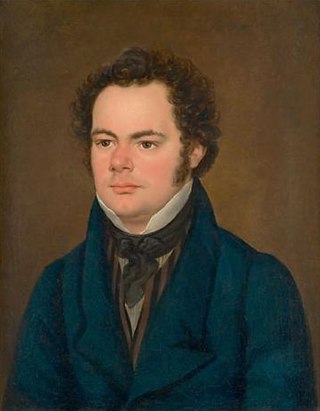
Franz Peter Schubert was an Austrian composer of the late Classical and early Romantic eras. Despite his short life, Schubert left behind a vast oeuvre, including more than 600 secular vocal works, seven complete symphonies, sacred music, operas, incidental music, and a large body of piano and chamber music. His major works include the art songs "Erlkönig", "Gretchen am Spinnrade", and "Ave Maria"; the Trout Quintet; the Symphony No. 8 in B minor (Unfinished); the Symphony No. 9 in C major (Great); the String Quartet No. 14 in D minor ; the String Quintet in C major; the Impromptus for solo piano; the last three piano sonatas; the Fantasia in F minor for piano four hands; the opera Fierrabras; the incidental music to the play Rosamunde; and the song cycles Die schöne Müllerin, Winterreise and Schwanengesang.

Marina Vlady is a French actress.
The composer Joseph Haydn is sometimes given the nickname "Papa" Haydn. The practice began in Haydn's lifetime and has continued to the present day.
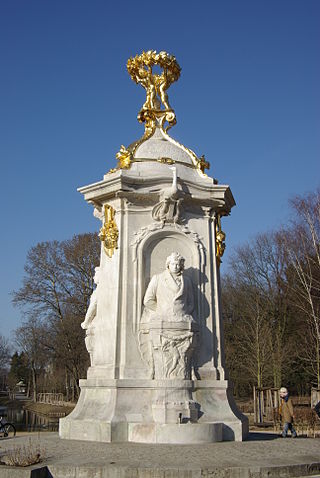
During the course of his lifetime, Ludwig van Beethoven (1770–1827) established relationships with many of his musical contemporaries. Beethoven was notoriously temperamental, eccentric and difficult to get along with; the history of his many relationships is replete with arguments, misunderstandings, and reconciliations. Beethoven had well-known quarrels with his one-time teachers, Joseph Haydn and Antonio Salieri, with the piano virtuoso and composer Johann Nepomuk Hummel, the German composer Carl Maria von Weber and the Italian violinist Niccolò Paganini. Conversely, he regarded Franz Schubert positively, praising the latter's compositions.

Franz Schubert wrote his Sonata in C major for piano four-hands, D 812, in June 1824 during his second stay at the Esterházy estate in Želiezovce. The extended work, in four movements, has a performance time of around 40 to 45 minutes. It was published as Grand Duo, Op. 140, in 1837, nine years after the composer's death.
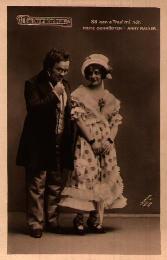
Das Dreimäderlhaus, adapted into English-language versions as Blossom Time and Lilac Time, is a Viennese pastiche operetta with music by Franz Schubert, rearranged by Heinrich Berté (1857–1924), and a libretto by Alfred Maria Willner and Heinz Reichert. The work gives a fictionalized account of Schubert's romantic life, and the story was adapted from the 1912 novel Schwammerl by Rudolf Hans Bartsch (1873–1952). Originally the score was mostly Berté, with just one piece of Schubert's, but the producers required Berté to discard his score and create a pasticcio of Schubert music.
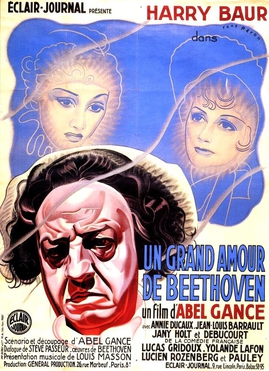
Beethoven's Great Love (French: Un grand amour de Beethoven is a 1936 French historical musical drama film directed by Abel Gance and starring Harry Baur, Annie Ducaux and Jany Holt. It portrays the career of the composer Ludwig van Beethoven. In Britain and the United States it was sometimes alternatively titled The Life and Loves of Beethoven.

We Are All Murderers is a 1952 French-Italian crime drama film written and directed by André Cayatte and starring Marcel Mouloudji, Raymond Pellegrin and Claude Laydu. It was shot at the Boulogne Studios in Paris. The film's sets were designed by the art director Jacques Colombier. It tells the story of René, a young man from the slums, trained by the French Resistance in World War II to kill Germans. He continues to kill long after the war has ended, as it is all he knows.It was entered into the 1952 Cannes Film Festival and won the Special Jury Prize.

Franz Schubert is a 1953 Austrian film depicting composer Franz Schubert's life and work.

Unfinished Symphony is a 1934 British-Austrian musical drama film directed by Willi Forst and Anthony Asquith and starring Mártha Eggerth, Helen Chandler, Hans Jaray, and Ronald Squire. The film is based on the story of Franz Schubert who, in the 1820s left his symphony unfinished after losing the love of his life. The film's alternate German-language version was called Gently My Songs Entreat. This title refers to the first line of the Lied "Ständchen" (Serenade) from Schubert's collection Schwanengesang, "the most famous serenade in the world", performed by Mártha Eggerth in the film.

Schubert's Dream of Spring is a 1931 German musical film directed by Richard Oswald and starring Carl Jöken, Gretl Theimer and Alfred Läutner. It was shot at the Halensee Studios in Berlin with sets designed by the art director Franz Schroedter. It is a biopic of the Austrian composer Franz Schubert (1797–1828). It was one of two films along with Vienna, City of Song (1930) with which the director paid musical tribute to his native city Vienna.

Franz Böheim was an Austrian film actor. Böheim appeared in more than fifty films and television series, including the 1947 film It's Only Love in which he played Franz Schubert. He was the brother of the actors Carlo Böhm and Alfred Böhm.
It's Only Love is a 1947 Austrian historical musical film directed by Emmerich Hanus and starring Franz Böheim, Klaramaria Skala and Walter Gynt. The film portrays the life of the composer Franz Schubert.

Gently My Songs Entreat is a 1933 Austrian-German musical film directed by Willi Forst and starring Marta Eggerth, Luise Ullrich and Hans Jaray. The film was shot at the Sievering Studios in Vienna with art direction by Julius von Borsody. The film is a biopic of the composer Franz Schubert (1797–1828). It was Forst's directorial debut. A British version was made called Unfinished Symphony. The German title refers to the first line of the Lied "Ständchen" (Serenade) from Schubert's collection Schwanengesang, "the most famous serenade in the world", which Eggerth performs in the film.
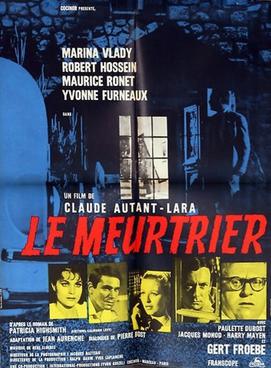
Enough Rope is a 1963 French-Italian-West-German neo noir crime film directed by Claude Autant-Lara and starring Marina Vlady, Robert Hossein, Maurice Ronet, Yvonne Furneaux and Gert Fröbe. The film is an adaptation of Patricia Highsmith's 1954 novel The Blunderer.
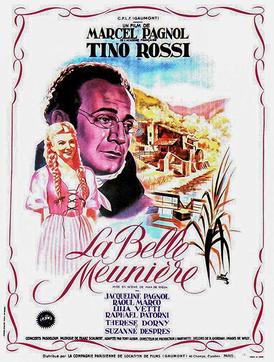
The Pretty Miller Girl is a 1949 French musical film directed by Marcel Pagnol and starring Tino Rossi, Jacqueline Pagnol and Raoul Marco. It is part of the tradition of operetta films. The title is a reference to Schubert's song cycle Die schöne Müllerin.
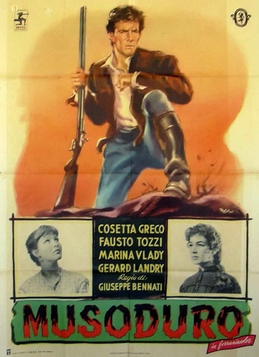
Musoduro is a 1953 French-Italian drama film directed by Giuseppe Bennati and starring Fausto Tozzi, Marina Vlady and Cosetta Greco.
Glauco Pellegrini (1919–1991) was an Italian screenwriter and film director.

Too Young for Love AKA The Age of Indiscretion is a 1953 French-Italian comedy drama film directed by Lionello De Felice and starring Aldo Fabrizi, Marina Vlady and Fernand Gravey. Some of the film was shot on location in Castellana Grotte.

Countess Caroline Esterházy de Galántha was a Hungarian noblewoman, and a friend and muse to composer Franz Schubert. A dedication of his Fantasia in F minor D 940 to her can only be found in the posthumous first edition, not in Schubert's autograph.

















